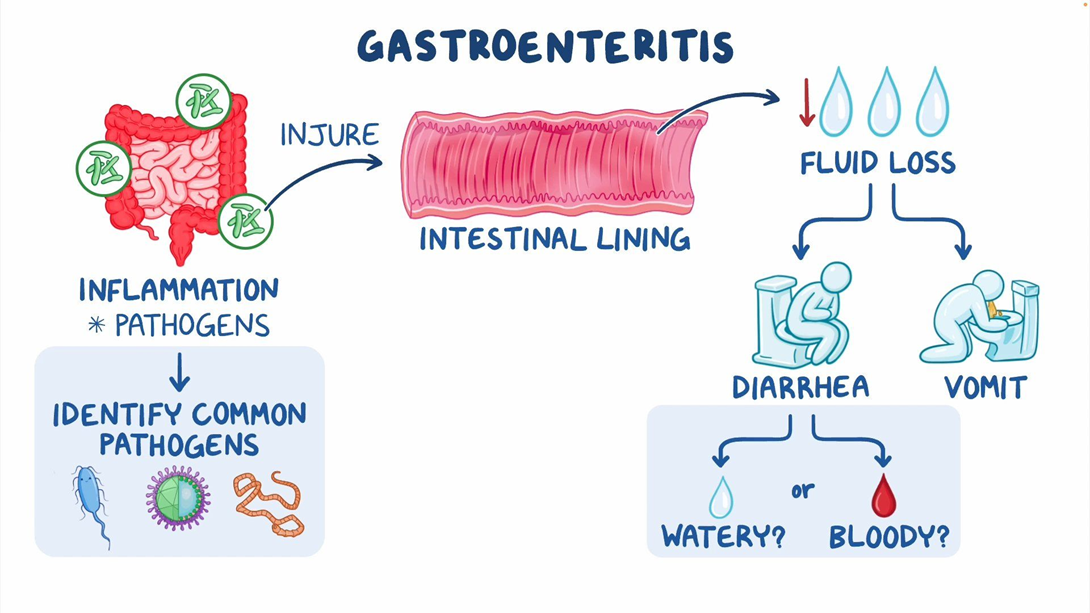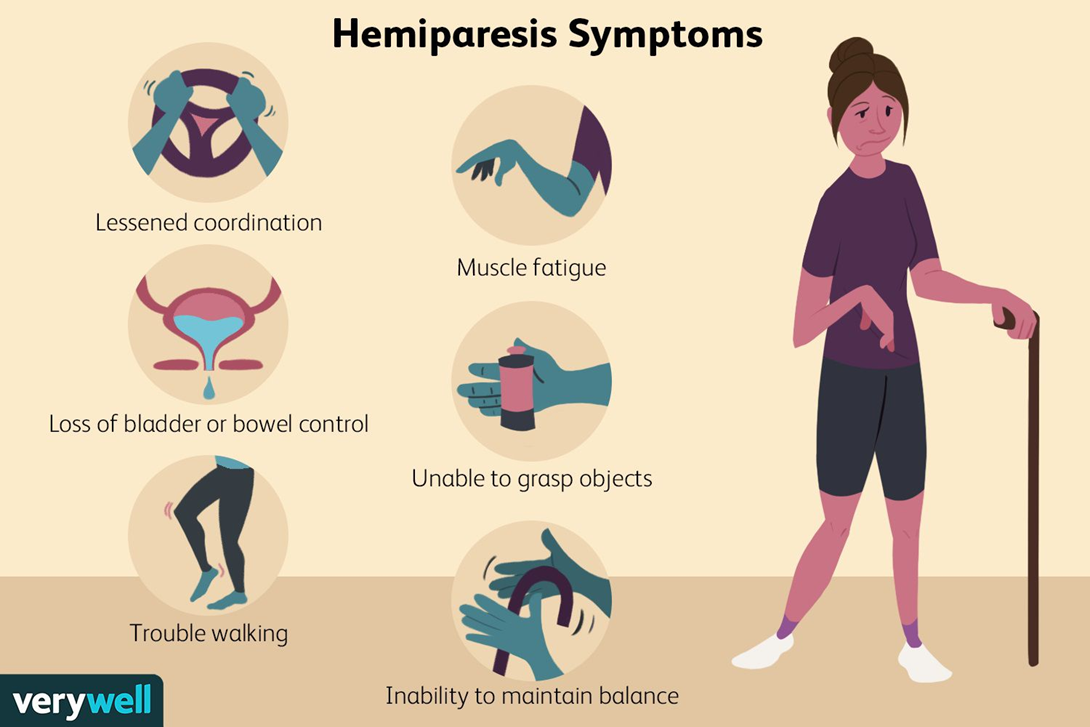A nurse in a clinic is caring for a client who has gastroenteritis. The nurse compares the client's condition from two days ago and today. Which of the following changes should the nurse report to the provider?
The client is confused and appears weak.
The client's oral mucosa is dry and tongue is furrowed.
The client's lungs are clear bilaterally.
The client's abdomen is soft and nontender.
The Correct Answer is A
Choice A reason: Confusion and weakness are signs of dehydration and electrolyte imbalance, which can result from vomiting and diarrhea. These are serious complications that can affect the client's mental status, blood pressure, heart rate, and kidney function. The nurse should report these changes to the provider and monitor the client's vital signs and fluid status.
Choice B reason: Dry oral mucosa and furrowed tongue are also signs of dehydration, but they are less severe than confusion and weakness. The nurse should report these changes to the provider as well, but they are not the most urgent ones.
Choice C reason: Clear lungs bilaterally are a normal finding and do not indicate any change in the client's condition. The nurse should document this finding, but it does not require reporting to the provider.
Choice D reason: A soft and non-tender abdomen is a normal finding and does not indicate any change in the client's condition. The nurse should document this finding, but it does not require reporting to the provider.

Nursing Test Bank
Naxlex Comprehensive Predictor Exams
Related Questions
Correct Answer is B
Explanation
Choice A reason: Setting a weight loss goal is an important step in the weight management process, but it is not the first action the nurse should take. The nurse should first assess the client's readiness and willingness to change, as well as the factors that motivate the client to lose weight.
Choice B reason: Identifying the client's motivation is the first action the nurse should take, as it helps the nurse to tailor the interventions to the client's needs and preferences. The nurse should explore the client's reasons for wanting to lose weight, such as improving health, appearance, or self-esteem, and use them as positive reinforcement.
Choice C reason: Discussing behavior modification is a key component of weight management, but it is not the first action the nurse should take. The nurse should first identify the client's motivation and then help the client to develop realistic and specific goals and strategies to change their eating and physical activity habits.
Choice D reason: Referring the client to a dietitian is a helpful action, but it is not the first action the nurse should take. The nurse should first identify the client's motivation and then collaborate with the dietitian to provide individualized and evidence-based dietary advice and education to the client.
Correct Answer is C
Explanation
Choice A reason: Hypernatremia is not a sign of water intoxication, but rather the opposite condition. Hypernatremia means high sodium levels in the blood, which can occur when the body loses more water than sodium, such as in dehydration, diabetes insipidus, or excessive salt intake. Water intoxication causes hyponatremia, which means low sodium levels in the blood, due to excessive water intake or retention.
Choice B reason: Weak pulses are not a specific sign of water intoxication, but rather a general sign of poor perfusion or circulation. Weak pulses can have many causes, such as hypotension, shock, heart failure, or peripheral vascular disease. Water intoxication can cause hypotension, but it can also cause hypertension, depending on the volume status of the client.
Choice C reason: Muscle weakness is a sign of water intoxication, as it reflects the effect of low sodium levels on the neuromuscular system. Sodium is essential for nerve and muscle function, as it helps generate electrical impulses and contractions. When sodium levels drop too low, the nerves and muscles become less responsive and weaker. Other signs of water intoxication affecting the nervous system include confusion, headache, seizures, and coma.
Choice D reason: Exaggerated reflexes are not a sign of water intoxication, but rather a sign of hyperreflexia, which is a condition of overactive reflexes. Hyperreflexia can have many causes, such as spinal cord injury, stroke, multiple sclerosis, or electrolyte imbalance. Water intoxication can cause electrolyte imbalance, but it usually leads to hyporeflexia, which is a condition of reduced or absent reflexes.

Whether you are a student looking to ace your exams or a practicing nurse seeking to enhance your expertise , our nursing education contents will empower you with the confidence and competence to make a difference in the lives of patients and become a respected leader in the healthcare field.
Visit Naxlex, invest in your future and unlock endless possibilities with our unparalleled nursing education contents today
Report Wrong Answer on the Current Question
Do you disagree with the answer? If yes, what is your expected answer? Explain.
Kindly be descriptive with the issue you are facing.
